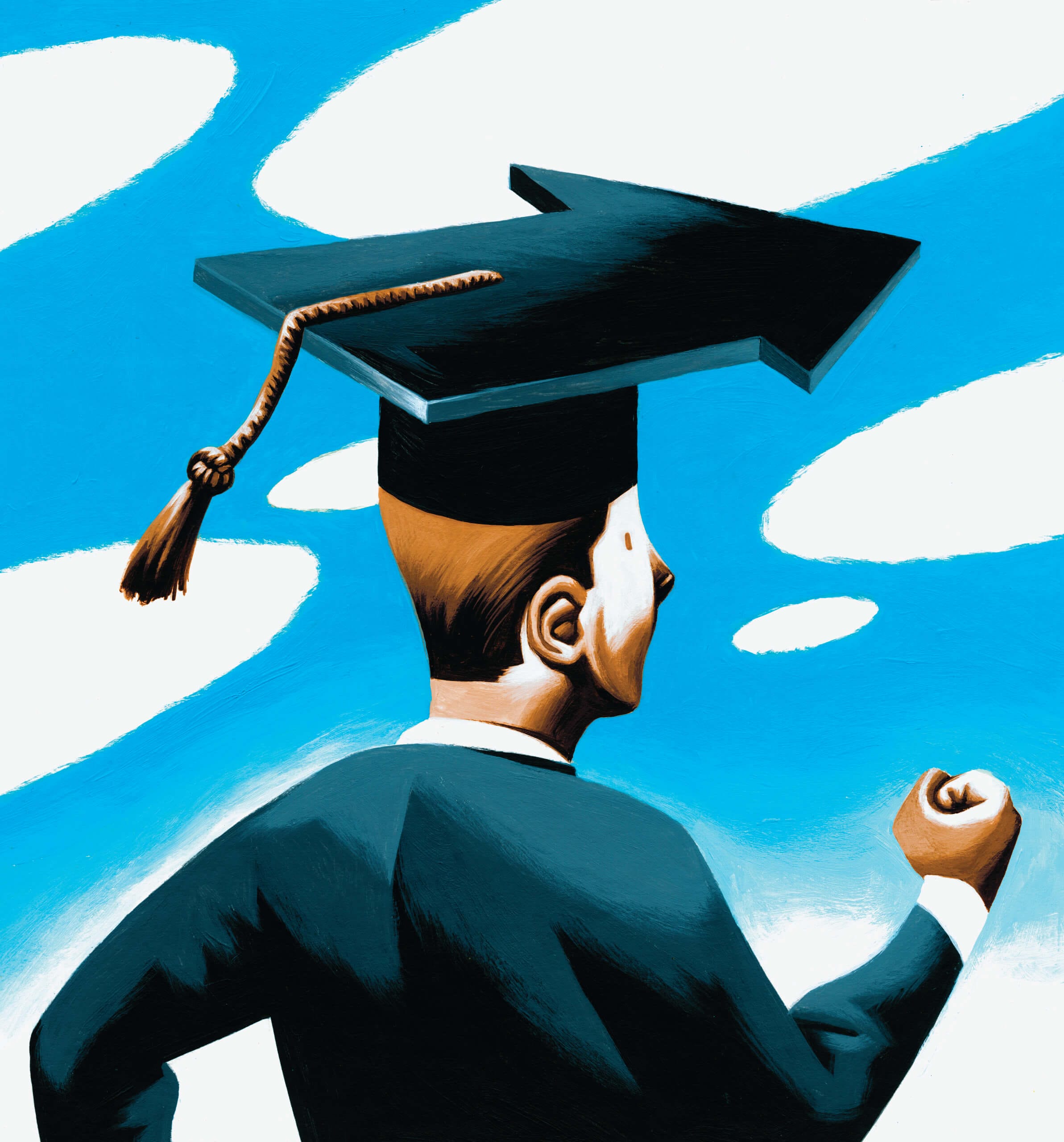In the weeks before Commencement, this year’s graduating MBA class sat down for a different kind of interview. For the first time, 358 second-year students took part in one-on- one alumni orientation interviews with 40 staff members from across the Wharton School. It was in part “a strategic introduction of alumni resources and engagement opportunities,” as Senior Associate Director of MBA Career Management Cara Costello called it.
Costello, who led the charge to establish the orientation, traces the planning stages back to a meeting of the Dean’s Graduate Student Advisory Committee more than a year ago. The group did a study on the young alumni experience, which found that students “felt the process of exiting Wharton was somewhat disjointed,” says Costello.
The resulting inaugural alumni orientation program, sponsored by the Graduate Division and External Affairs, instead sought to provide a “streamlined, consistent and positive departure.”
The first component was a comprehensive graduation checklist, which was launched in March with an easy-to-use, electronic platform. According to Costello, more than 95 percent of the graduating class utilized this new tool.
The in-person interviews then took place from April 16 to 19 in the MBA Café Lounge. For those who did not participate in person, an online version of the orientation was offered.
The interview began with a brief overview of the checklist and segued into a discussion of the student’s most memorable Wharton experience. Responses varied from social events like Pub to Wharton Leadership Ventures.
“I got a couple of responses that were about how transformative the overall experience was,” says Associate Director of Corporate and Foundation Relations Amy Levine, who worked closely with Costello and the Student and Young Alumni Engagement Committee to implement the program. The interview next turned to informing the participants about the many alumni opportunities available to the soon-to-be graduates, such as regional clubs and Lifelong Learning programs. Individual interviews were customized to fit a student’s regional plans or specific interests. Afterward, students had the chance to complete any outstanding checklist items and receive a parting gift from the School.
For students, the program was incredibly popular.
“One of the most satisfying pieces of the week is that, after the first day, we had tons of requests for walk-ins,” says Costello, adding that she looks forward to seeing the program continue in years to come.
Suzanne Schumer, WG’12, who participated as both an interviewee and as a member of student focus groups who helped shape the orientation, lauds the new program for introducing students to the notion that “a Wharton experience is more than a two-year stint but instead a lifelong experience.”
“As for me, I expect to remain involved with Wharton in the future. I have a lot of very positive memories of Wharton,” she said.
Older alumni can confirm: New Wharton memories continue to be made even as those from campus recede into the past.

























